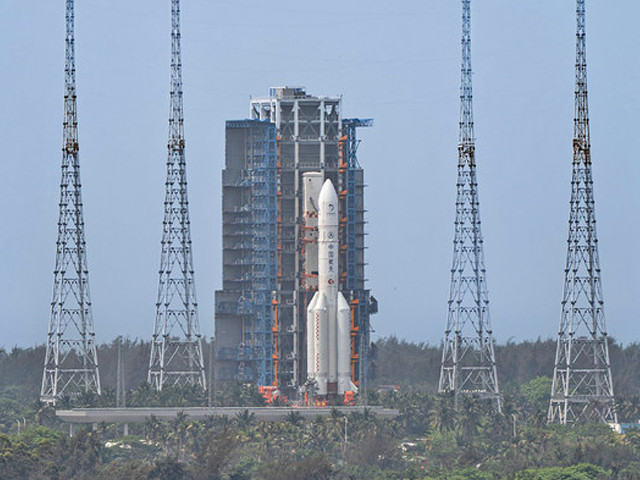In a momentous stride for Pakistan's space ambitions, the launch of the iCube-Qamar ‘cubesat’ marks a significant step forward in the country's journey into deep space exploration. This achievement not only showcases Pakistan's growing prowess in scientific endeavours but also underscores the potential for further advancements with concerted efforts and sustained investments in education and research.
This orbiter is currently on its way through space as part of China's Chang’e-6 lunar probe and is scheduled to be deployed on May 8th. The Chang’e-6 mission aims to collect samples from the dark side of the moon and is also carrying payloads from Italy and France alongside Pakistan's orbiter. The collaboration between Pakistan's Institute of Space Technology, Suparco, and a Chinese university made this mission possible, with the Pakistani orbiter designed to capture images from the lunar surface.
The successful deployment of the iCube-Qamar orbiter, hitching a ride with China's Chang’e-6 lunar probe, represents a triumph of collaboration and determination. This joint effort demonstrates the power of international partnerships in advancing scientific frontiers. It's a testament to the fact that even nations facing considerable challenges can break new ground when they leverage global cooperation and prioritise scientific excellence.
However, the road to this milestone has been burdened with obstacles. Pakistan's earlier entry into the ‘space race’ with the Rehber-1 rocket in the 1960s, supported by American aid, highlights a history of intermittent progress marred by bureaucratic hurdles and resource constraints. The lamentable trend of appointing non-specialists to lead key scientific initiatives and the lack of sustained investment in research infrastructure have stifled the full potential of Pakistan's scientific community.
Despite these setbacks, the successful deployment of the iCube-Qamar cubesat signals a reinvigorated commitment to space exploration. This achievement should serve as an inspiring call for national leaders to prioritise education and research, fostering a culture that celebrates intellectual curiosity and innovation. Investment in STEM education from primary levels onward is imperative to cultivate a new generation of scientists and engineers capable of propelling Pakistan's scientific agenda forward. By prioritising STEM education, Pakistan can unlock its potential for innovation, economic growth, and societal development in an increasingly technology-driven world.
Moreover, while the pursuit of grandiose space missions may currently be beyond Pakistan's economic means, strategic investments in smaller-scale initiatives, such as satellites for communication and remote sensing, can yield immediate benefits for the country's development. These projects not only contribute to scientific knowledge but also have practical applications in disaster management, agriculture, and environmental monitoring.
The journey to space exploration is not just about reaching the moon or beyond; it's about nurturing a scientific mindset that values discovery and inquiry. Pakistan has demonstrated with the iCube-Qamar mission that it possesses the intellectual capital and technical expertise necessary to participate meaningfully in the global space community. What remains crucial now is sustained support from policymakers, increased funding for research, and the cultivation of an ecosystem where scientists are celebrated as national heroes.
As Pakistan's iCube-Qamar orbits the moon, capturing images that expand our understanding of the universe, let it also symbolise a new era of scientific ambition and national pride. Let us seize this moment to invest in our future, not just in the cosmos but right here on Earth, by empowering our scientists and innovators to reach for the stars. The sky is not the limit; it is just the beginning of Pakistan's journey into the infinite territories of scientific discovery.



COMMENTS (10)
Comments are moderated and generally will be posted if they are on-topic and not abusive.
For more information, please see our Comments FAQ